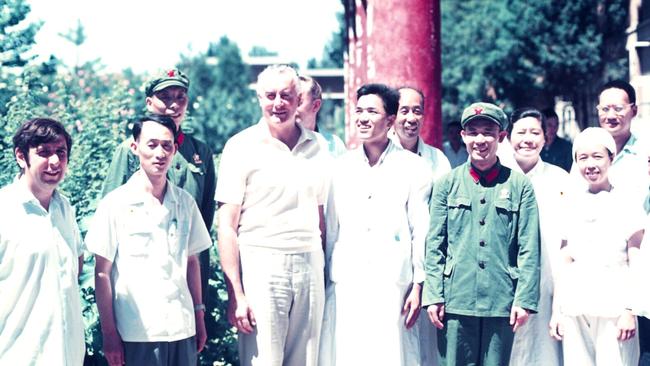Australia’s relationship with China ‘has never been worse’
Australia’s diplomatic relations with China are at their lowest point in 50 years, argues Australia’s first Ambassador to Beijing.

Australia’s diplomatic relations with China are at their lowest point in 50 years, argues Stephen FitzGerald, Australia’s first Ambassador to the People’s Republic of China.
In an interview to mark the anniversary of Gough Whitlam’s historic visit to China in 1971, which paved the way for diplomatic relations in 1972, Dr FitzGerald urged Australia’s policymakers to prioritise re-establishing leader-to-leader relations.
“It is a different China but that does not absolve us of the responsibility of trying to engage with it,” Dr FitzGerald, 82, said. “It does not matter what you think about the government and, let’s face it, the government in China when Whitlam went in 1971 was not exactly a loveable government.”
“China is now economically bigger, more powerful, but you have to engage with a country like that whatever you think of it. This is what Japan, Singapore, South Korea, Vietnam are doing. And so have other Asian countries.”
“Some of them, like Japan, have had really big historical issues with China and contemporary issues about territorial matters in the East China Sea but they take the view that you have got to engage.”
“We should be engaging with Beijing at the highest possible level. It is really important to be talking at the very top to get an understanding of how the Chinese leaders view a range of issues, to see how they respond, and to put our views about our national interests.”
Dr FitzGerald, who served as Ambassador to China from 1973 to 1976, suggested the Morrison government establish secret back-channel discussions with Chinese leaders that could lead to re-establishing regular meetings at the head of government and ministerial level.
“We have to learn from what the Japanese do, and others around the Asian region, and that is you have to have back channels,” he said. “You have to have ways of communicating with China and not always publicise it.”

“In establishing these kinds of important back-channels, you could actually communicate to people at the very highest level without the glare of publicity and begin to set things up for something to happen at the official level.”
Relations with China, which have underpinned Australia’s economic prosperity for several decades, have significantly deteriorated in recent years. An increasingly assertive and authoritarian China has imposed coercive restrictions on more than $20 billion of Australian exports in response to a range of grievances, including calling of an inquiry into the origins of Covid-19 and banning Huawei from the 5G network.
Dr FitzGerald is the last surviving member of the historic Labor delegation to China in 1971, when the party was in opposition, which met with senior Chinese officials, including Premier Zhou Enlai, to discuss trade and diplomatic relations.
The Australian partly funded the delegation and Mr Whitlam wrote a series of exclusive articles for this newspaper about his visit to China.

Mr Whitlam, who had called for diplomatic recognition for the People’s Republic of China in 1954, was roundly criticised by Prime Minister Billy McMahon for making the trip. But ten days after Mr Whitlam’s meeting with Premier Zhou, US President Richard Nixon announced that he would go to China with a view to normalising relations.
The broad Australia-China relationship, while sustained by strong business, education and cultural links, risks long-term damage if it is allowed to wallow in suspicion, hostility and fear as it did in the 1950s and ‘60s, Dr FitzGerald said.
“It goes all the way back to the nineteenth century,” he said. “Paranoia about China has been dormant or active and the extent to which it is active has depended in part on the encouragement that governments have given to it. That was the case certainly back then in the late 1960s and early ‘70s and it is certainly the case now.”
“Because we have 1.4 million people of Chinese ancestry living in this country, it has begun to put them under suspicion and I think this is really tragic for Australia. It is divisive, it is unfair and it is deeply wounding to many of our Chinese Australians. And we have to find ways to put a stop to this.”
-
During his 1971 trip Gough Whitlam filed a series of articles for The Australian about what he saw, and why he believed so passionately in the need for Australia to develop a relationship with China. They are remarkably resonant today.
Read them here:
Whitlam’s Dateline Peking: Labor’s leader reports from China
-


To join the conversation, please log in. Don't have an account? Register
Join the conversation, you are commenting as Logout